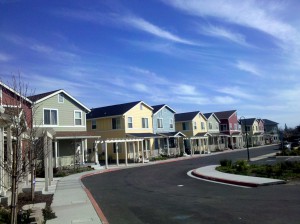 Two reports this week indicate that the economy is improving – that is, if retail sales and home prices are considered good economic indicators.
Two reports this week indicate that the economy is improving – that is, if retail sales and home prices are considered good economic indicators.
U.S. home prices increased by the largest amount since 2006 in August, rising 0.9%, according to a report by S&P/Case-Shiller released this week.
That number beat expectations from economists, who predicted a 0.6% gain, according to CNBC.
Compared to August 2012, prices have risen 12.8%, which is the largest year-over-year gain since February 2012, when the increase was 13.8%.
According to CNBC, the gain occurred even though mortgage rates increased during August. Home prices have risen across the country since the beginning of 2012, according to CNBC, which has made it an area that economists have pointed to as a positive sign for the country’s economic future.
The S&P/Case-Shiller report looked at home prices in 20 metropolitan statistical areas. In a press release, David M. Blitzer, chairman of the Index Committee at S&P, said the 13 of the 20 cities showed double digit gains.
Las Vegas and cities in California showed year-over-year increases above 20%, according to Blitzer. Denver and Phoenix have now posted 20 straight months of increases, while Miami and Minneapolis have posted 19 straight months of increases.
On the flip side, while Detroit has had 26 straight months of year-over-year gains, the prices had fallen so far that the city is still not back to its January 2000 level. Detroit is the only one of the 20 cities not to reach and surpass that level.
The best markets are in Denver and Dallas, where housing prices have hit new highs. Boston and Charlotte are getting close to their highest prices ever, with another 8% to 9% in gains needed. Despite the gains, Las Vegas remains about 47% off its high.
The news can be useful for those closing in on graduation. Cities with rising home prices also often have the best job markets.
In a report released this week, the Commerce Department reported that retail sales improved in September by 0.4%. That number, however, excludes automobile sales, which dropped during the same period.
Consumers felt better about making purchases because rising home and stock prices “gave them the wherewithal to sustain demand,” according to an article from Bloomberg. It’s also possible that sales could have been higher because some consumers in September may have been concerned about the impending government shutdown, which ended up lasting the first 16 days of October.





